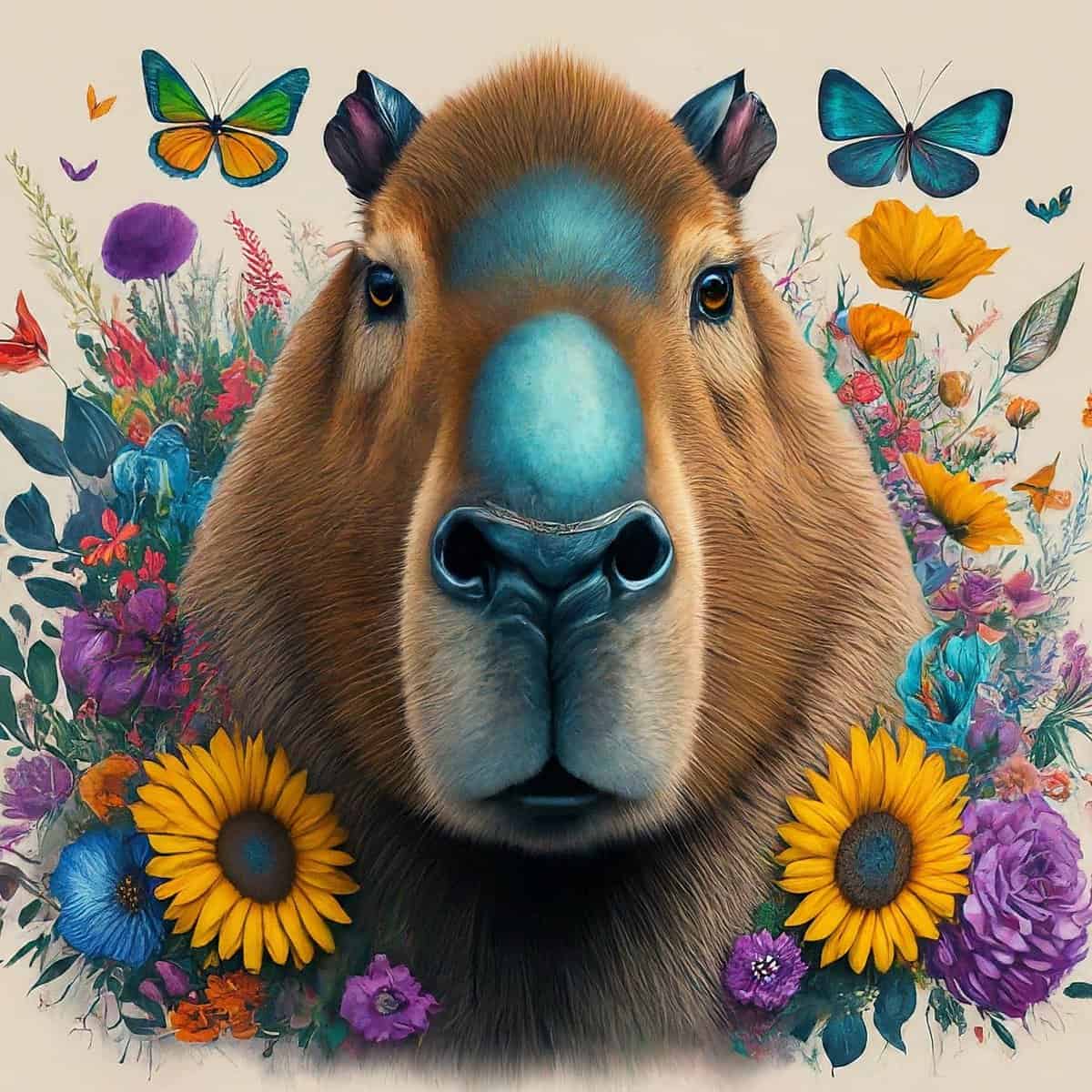If you’re thinking about welcoming a capybara into your home, it’s important to consider the financial aspects involved. The initial purchase price for this exotic animal typically falls between $1,500 and $3,000, influenced by factors like location and breeder reputation.
But don’t overlook the ongoing pet expenses! Costs can add up quickly, from the habitat setup to catering to their unique dietary needs.
Creating a cozy living environment is key since they are social creatures and require plenty of space to thrive. Regular veterinary bills will be essential for keeping exotic animals, such as capybaras, healthy and ensuring their specific dietary needs and habitat setup are met.
Click here to learn more about: tools
Understanding Capybara Ownership Costs
Welcoming a capybara into your home can be an adventure filled with joy, but it’s important to consider the financial aspects involved. First up, the initial purchase price varies significantly.
You could be looking at a range from a few hundred to over a thousand dollars, depending on if you’re adopting or sourcing from a breeder.
Then, let’s chat about daily living expenses.
These furry friends thrive on a balanced diet of hay, vegetables, and pellets, which can set you back around $50 to $100 each month. Plus, you’ll need suitable bedding materials and plenty of space for them to roam and socialization tips, which adds to the overall expenses. And we can’t overlook the importance of socialization tips, animal welfare, companionship, grooming supplies, bedding materials, enrichment activities, behavior patterns, lifespan, and legal regulations.

Essential Veterinary Services For Capybaras
Caring for a capybara goes beyond just providing food and a comfy home; it involves a relationship with a good vet. Regular health check-ups are a fantastic way to catch any issues early.
These appointments often include a thorough examination, making sure your furry friend is in great shape.
Early detection can greatly impact your capybara’s health care and overall happiness.
Vaccinations and preventative care play a significant role in maintaining well-being.
Keeping your capybara vaccinated shields them from diseases that could complicate their lives. Plus, staying on top of routine care can help save on breeding costs as the years go by. It’s all about being proactive for their sake!
Let’s not forget about dental health; it’s another important aspect of your capybara’s overall well-being, which also encompasses breeding costs, feeding habits, health care, insurance premiums, habitat size, interaction levels, training methods, transport requirements, and public awareness.
| Health Care Aspect | Importance |
|---|---|
| Regular Health Check-ups | Early detection of health issues |
| Vaccinations | Prevents diseases and complications |
| Dental Health | Essential for overall well-being |
| Preventative Care | Saves on long-term breeding costs |
Capybara Housing Requirements And Setup
Bringing a capybara into your home means creating a cozy and inviting space for your new friend. These social animals really shine in environments where they have room to roam and explore.
Aim for at least 100 square feet per capybara, and make sure there’s a safe outdoor area with water access for swimming and playing—it’s all about those pet-friendly environments!
Comfort is key for your furry companions.
Provide sheltered spots to protect them from extreme weather conditions.
Using high-quality bedding that absorbs moisture is also important for their well-being. Since these critters are happiest with company, consider housing more than one together to fulfill their behavioral traits.
Engaging their minds is equally important. Incorporate pet-friendly environments, nutritional supplements, veterinary services, animal rights, rescue organizations, ownership costs, maintenance, social animals, and behavioral traits into your pet care strategy to ensure a happy and healthy life for your furry companions.
LongTerm Commitment To Caring For Capybaras
If you’re considering bringing one of these lovable creatures into your life, you’re about to embark on a rewarding journey. These gentle giants can live for over a decade, so it’s important to think about this longterm commitment to their care.
From their environmental needs to the ongoing pet supplies you’ll need, being prepared is key.
Reflect on how your lifestyle adjustments can accommodate their unique requirements and how they’ll fit into your daily routine.
With the right mindset, you can provide a fulfilling life for your capybara while staying informed about local breeders and exotic pet laws.
Caring for a capybara also involves ethical considerations and a genuine emotional investment. They thrive on social interaction, which is essential for meeting their environmental needs and ensuring their well-being, while also considering ethical considerations and the importance of community resources, local breeders, and wildlife conservation in their care and lifestyle adjustments for a longterm commitment.
Conclusion
Bringing a capybara into your life can be an exciting adventure filled with joy and companionship. It’s important to be aware of ongoing expenses like veterinarian visits and enrichment toys that are crucial for your pet’s well-being.
You’ll also want to consider the necessary licensing and safety measures to ensure a secure environment for both your furry friend and your family.
Reflecting on how capybaras integrate into your family dynamics can help you determine if they are the right fit for your household.
This journey has the potential to be truly rewarding, but it requires thoughtful planning and a commitment to meet the needs of your new companion.

